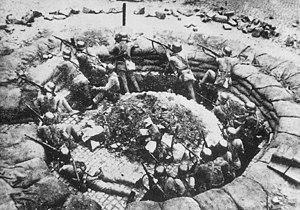Aviator Charles Lindbergh’s 20-month-old son Charles Jr is kidnapped from his home in East Amwell, New Jersey. His body would not be found until May 12.
The kidnapping of Charles Lindbergh Jr., the 20-month-old son of aviator Charles Lindbergh and his wife Anne Morrow Lindbergh, was one of the most notorious crimes of the 20th century. The abduction occurred on the evening of March 1, 1932, from the Lindbergh family home in East Amwell, New Jersey.
Charles Lindbergh Sr. was an international celebrity at the time, having gained fame as the first person to complete a solo transatlantic flight in 1927. The Lindberghs’ wealth and prominence made their son a high-profile target for kidnapping.
On the night of the abduction, the Lindberghs discovered that their son was missing from his crib. A ransom note demanding $50,000 was found in the nursery, sparking a massive investigation and a nationwide manhunt.
Despite the ransom payment, the Lindberghs’ son was not returned. His body was discovered more than two months later, on May 12, 1932, in a wooded area near the family home. The cause of death was determined to be a severe skull fracture, likely sustained from a fall or a blow to the head.
The investigation into the kidnapping was one of the largest in U.S. history at the time. The case captivated the nation and led to the passage of the Federal Kidnapping Act, also known as the Lindbergh Law, which made kidnapping across state lines a federal offense. The law was enacted in response to concerns that the Lindbergh case highlighted gaps in jurisdiction and law enforcement coordination.
The investigation eventually led to the arrest and trial of Bruno Richard Hauptmann, a German immigrant and carpenter. Hauptmann was found in possession of some of the ransom money, and handwriting experts testified that he had written the ransom notes. Despite maintaining his innocence, Hauptmann was convicted of first-degree murder and sentenced to death. He was executed in the electric chair on April 3, 1936.
The Lindbergh kidnapping remains one of the most infamous crimes in American history, and it continues to capture the public’s imagination nearly a century later.


